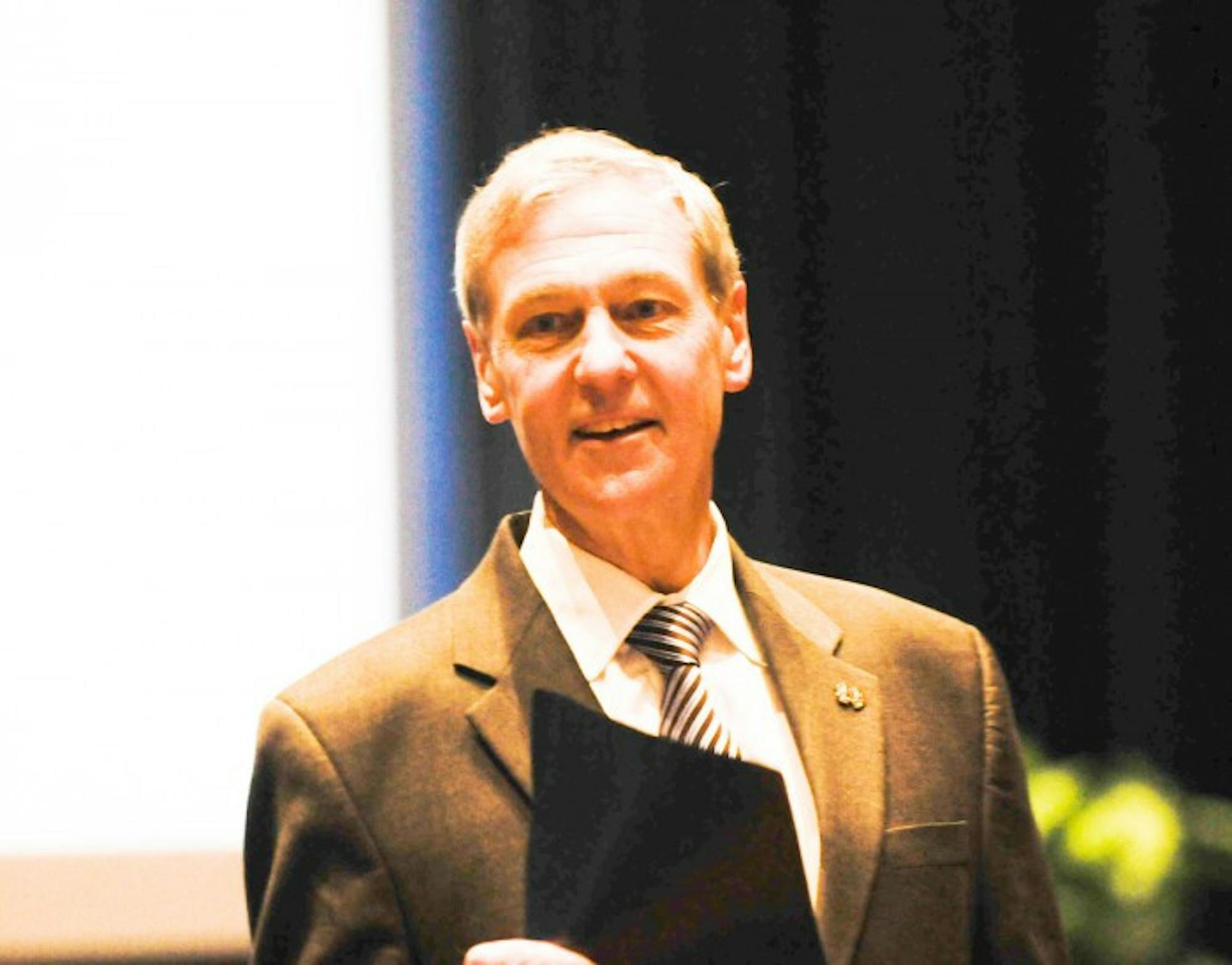Notre Dame’s Worker Participation Committee held an open forum Monday in McKenna Hall to allow students and faculty to pose questions regarding the issue of freedom of association in the Chinese factories that could produce Notre Dame apparel and goods if the committee's proposed pilot program receives approval.

Annmarie Soller | The Observer
Annmarie Soller | The Observer
University Executive Vice-President John Affleck-Graves said the recent work within the Worker Participation Committee studied the impact, or lack thereof, of “the University's recommendation in the late ’90s not to have products manufactured with the Notre Dame logo in any country that didn't give full freedom of association.”
The forum centered around the idea of worker participation, which Mike Low, director of licensing and Worker Participation Committee member, defined as “a set of systems where workers can actively engage with management in terms of their benefits, their working hours, and have a place to file a grievance and know that there will be worker committees to ... ensure their grievances are met.”
Kevin Christiano, associate professor of sociology, said he was unsure of the feasibility of ensuring a lasting freedom of association in the factories that produce licensed Notre Dame goods.
“China is the cheap manufacturing capital of the world,” Christiano said. “… If we go to China — if we do establish an operation with China — is there really a chance that we would ever leave China if conditions [within the factories] would deviate from our standards?” Christiano later questioned how the committee would determine or measure success in its goal of ensuring workers’ rights to freely associate.
The basic level of success, Affleck-Graves said, “is that we as a University community can feel confident that wherever Notre Dame apparel or goods are manufactured, … we have a sound process to assist all of those factories.”
Even still, “We are more ambitious than that,” Affleck-Graves said.
“We can encourage lots of institutions both academic and non-academic to join us and make [the worker participation assessment plan] something that is a tool that everyone can use,” he said.
Kevin Barry, director of the Kaneb Center for Teaching and Learning, said many other factors that needed to be assessed within these factories in accordance with Notre Dame's licensing code of conduct, not just the freedom of association.
“We are going to enforce every other part of the licensing code of conduct with these factories, so no children [workers] under 14, no prison labor, environmental practices,” he said. “All those things are going to be enforced, and [worker participation] is the only part that there is going to be any wavering on? That is the plan?”
Affleck-Graves and Lowe said eventually those factors will receive consideration, but for now, the assessments only focus on freedom of association, per the recommendation from the 1990s.
Three students spoke at the forum and expressed their concerns about student involvement.
“If the committee does create the pilot program, how will you involve the students during the duration of the program?” junior Madeline Inglis asked.
Affleck-Graves said he has plans for greater student participation in the program, and “maybe form a student advisory group” that would elect representatives to serve on the committee.
Although the Chinese government does not guarantee the freedom of association, Affleck-Graves said he has faith in China’s ability to change.
“I believe a lot in the human spirit,” he said. “… I believe some day China will change. … I would love people to look back and say that Notre Dame was part of their change.”









